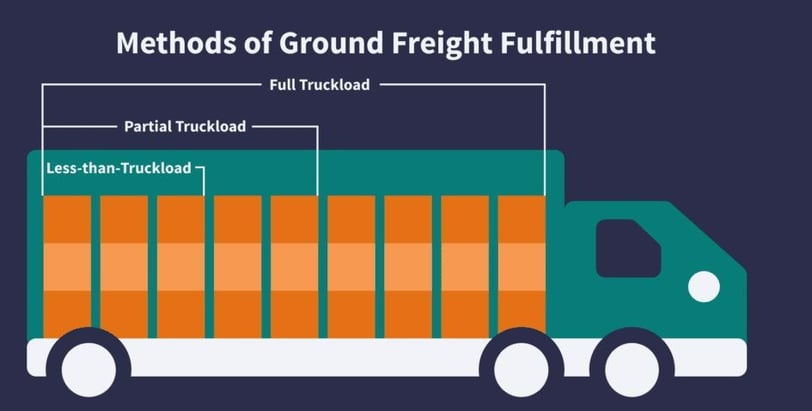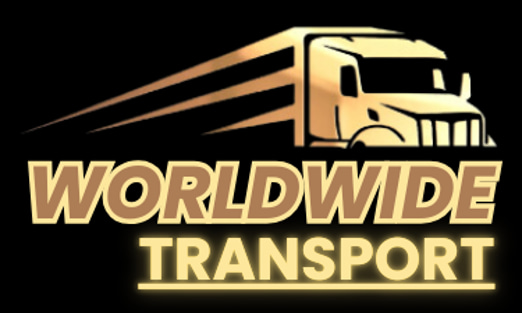Full Truckload (FTL) vs. Less-Than-Truckload (LTL): Which One is Right for You?
Choosing between FTL and LTL shipping can significantly affect your logistics efficiency and costs. Understanding the differences helps businesses optimize their transportation strategies.
2/20/20253 min read


Full Truckload (FTL) vs. Less-Than-Truckload (LTL): Which One is Right for You?
Introduction
When it comes to freight transportation, choosing the right shipping method is essential for cost efficiency, delivery speed, and cargo security. Two of the most common options in the trucking industry are Full Truckload (FTL) and Less-Than-Truckload (LTL) shipping. But how do you know which one is best for your business?
At Worldwide Transport LLC, we specialize in both FTL and LTL freight solutions, ensuring that businesses can transport their goods efficiently, affordably, and securely. In this article, we will break down the differences between FTL and LTL shipping, their benefits, and when to choose each option.
What is Full Truckload (FTL) Shipping?
Full Truckload (FTL) shipping is a freight transportation method where a single shipment occupies an entire truck. This option is best suited for businesses that need to transport large volumes of cargo or require faster and more secure deliveries.
Benefits of FTL Shipping:
✔ Faster Transit Times: Since the truck is dedicated to one shipment, there are no unnecessary stops for additional cargo pickups or drop-offs.
✔ Reduced Risk of Damage: With FTL, the freight is not shared with other shipments, reducing the risk of damage from frequent handling.
✔ Ideal for Large Shipments: FTL is perfect for businesses that need to ship bulk or high-volume goods efficiently.
✔ Predictable Delivery Schedule: Since the truck moves directly from the pickup to the destination, businesses can expect more accurate delivery times.
When to Choose FTL Shipping?
If your shipment fills an entire truck or weighs over 10,000 pounds.
If you need a fast and direct delivery service with no stops in between.
If your cargo is fragile, high-value, or time-sensitive and requires minimal handling.
At Worldwide Transport LLC, we provide customized FTL solutions, ensuring on-time deliveries, safety, and cost efficiency.
What is Less-Than-Truckload (LTL) Shipping?
Less-Than-Truckload (LTL) shipping is a freight method where multiple shippers share one truck, each paying only for the space their cargo occupies. This is an excellent option for businesses with smaller shipments that do not require an entire truck.
Benefits of LTL Shipping:
✔ Cost Savings: Since multiple shipments share the truck, businesses only pay for the space they use, making it a more affordable option.
✔ Great for Small Shipments: LTL is ideal for businesses shipping pallets, boxes, or smaller loads that don’t require a full truck.
✔ Flexible Freight Options: LTL carriers offer various shipping speeds, including expedited, standard, and economy delivery.
✔ Eco-Friendly Option: Sharing truck space with other shipments reduces fuel consumption and carbon footprint, making it a greener choice.
When to Choose LTL Shipping?
If your shipment is under 10,000 pounds and doesn’t fill an entire truck.
If you want a budget-friendly option without paying for unused truck space.
If your delivery timeline is flexible, allowing for shared transportation with other shipments.
At Worldwide Transport LLC, we help businesses optimize their LTL shipping strategies to reduce costs while maintaining reliable, on-time deliveries.
FTL vs. LTL: Key Differences
Feature Full Truckload (FTL)Less-Than-Truckload (LTL) Shipment Size Large shipments that require an entire truck Smaller shipments that share truck space Cost Higher cost, but more efficient for large freight More affordable, businesses pay only for needed space Delivery Time Faster, with direct transportation Slower, due to multiple stops and cargo consolidation Handling & Security Minimal handling, less risk of damage More handling, with potential for minor damages Ideal For Large-volume, time-sensitive, or fragile cargo Small businesses, flexible delivery schedules, cost-conscious shippers.
How to Choose the Right Freight Shipping Option
The best shipping method depends on your specific business needs, budget, and cargo requirements. Consider the following factors:
1. Shipment Size & Weight
If you’re shipping more than 10,000 pounds or filling an entire truck, choose FTL.
If your freight is smaller and doesn’t require a full truck, LTL is the best choice.
2. Delivery Speed
If time is critical, FTL provides direct delivery with no stops.
If your shipment isn’t urgent, LTL offers a more economical alternative.
3. Budget & Cost Considerations
If you want faster, more secure deliveries, FTL is worth the investment.
If you need cost savings, LTL is a budget-friendly option for smaller loads.
4. Freight Type & Handling Requirements
If your cargo is fragile, high-value, or perishable, FTL reduces handling risks.
If your freight is durable and can withstand multiple handlings, LTL is a great option.
Conclusion
Both FTL and LTL shipping provide unique advantages depending on your business needs, budget, and delivery urgency. Choosing the right option ensures that your freight is transported efficiently, safely, and cost-effectively.
At Worldwide Transport LLC, we specialize in both FTL and LTL shipping, offering custom freight solutions tailored to your specific needs. Whether you require fast, direct truckload shipping or a cost-effective shared freight solution, we ensure secure, on-time deliveries across the U.S.
Reliable Transport Solutions For All Your Business Needs!
Follow Us On Social Media
Subscribe To Our Newsletter
© 2025. All Rights Reserved To WORLDWIDE TRANSPORT LLC.
Contact Us
CALL:
HOURS:
EMAIL:
Mon-Sun | 8:00 AM - 5:00 PM
